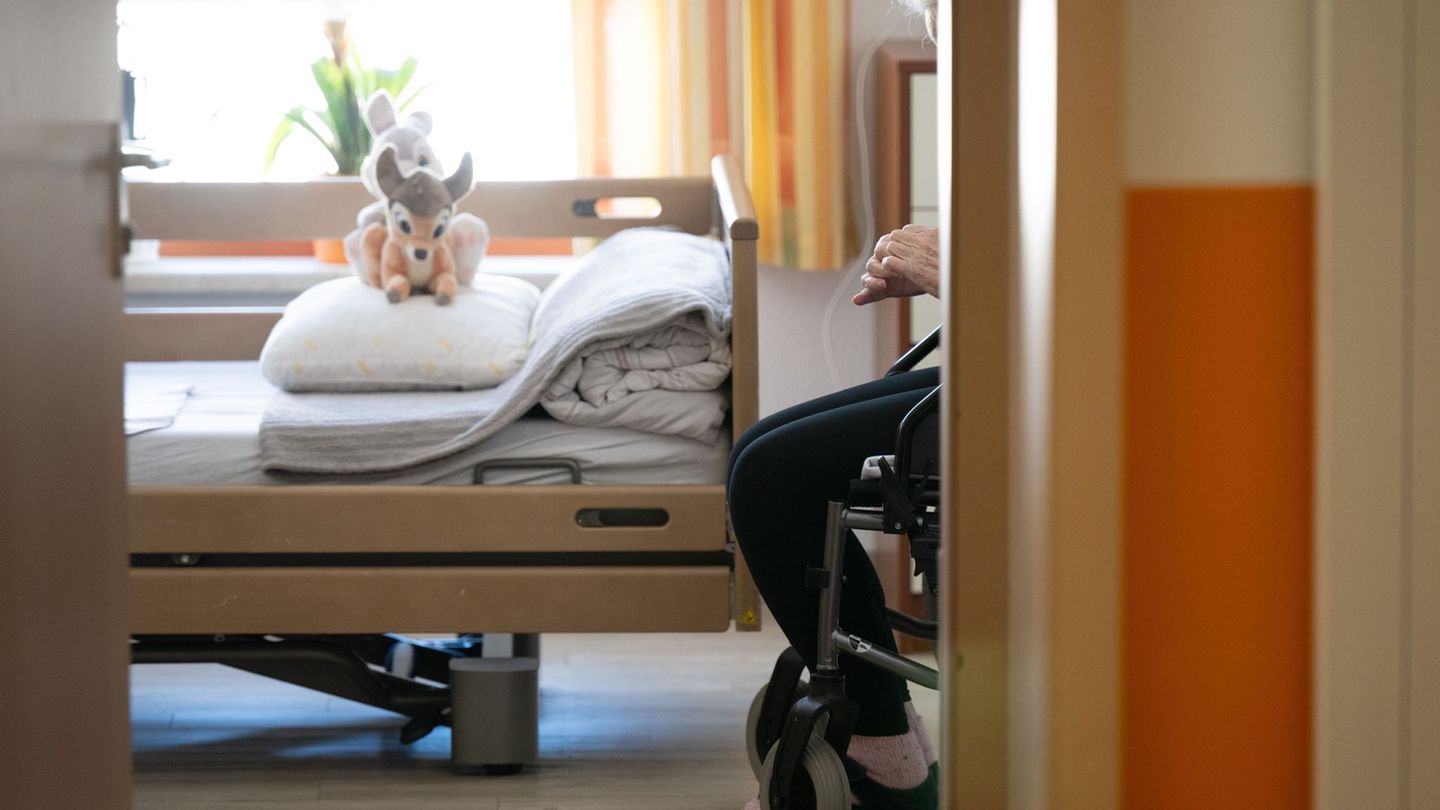Health costs
Care in the home even more expensive – pressure for discharge
Copy the current link
Add to the memorial list
Persons in need of care and their families have to put higher and higher sums to pay for a home place. Coste deafers cannot stop this, as new numbers show. Is there a large reform?
Care in the home becomes even more expensive for residents. Payments from our own pocket during the first year in the facility now exceeded the nationwide average, the mark of 3,000 euros a month, according to an evaluation of the association of the replacement health insurers. As of July 1st, an average of 3,108 euros were due. That is 124 euros more than in January 1 and 237 euros more than on July 1, 2024. In ongoing consultations for a large nursing reform, the pressure for relief continues to grow.
Significant differences in the countries
In comparison of the federal states, care is now the most expensive in the first year in the home in Bremen with an average of 3,449 euros a month, as the data available to the German Press Agency show. North Rhine-Westphalia follows with 3,427 euros. The monthly burden on July 1 in Saxony-Anhalt with 2,595 euros and Mecklenburg-Western Pomerania with 2,752 euros was the lowest.
On the one hand, the sums contain the own contribution for pure care and support. Because, unlike health insurance, long -term care insurance only bears a part of the costs. For residents in the home, payments for accommodation and meals, investments in the facilities and training costs are added.
Almost 200 euros a month more only for pure care
The reason for ever higher burdens by those in need of care are increasing personnel and living expenses, explained the replacement health insurance association. For example, the own contribution only went for pure care in the nationwide average to 1,862 euros a month – 184 euros more than in the middle of last year. Significantly, there is a better payment of urgently needed nursing staff.
But also maintenance and meals cost more, namely an average of 1,018 euros a month and thus plus 63 euros compared to July 2024. Remuneration agreements of the long -term care insurance companies with homes in all countries, as the association of the replacement health insurers explained. He includes, for example, the technician health insurance company, the Barmer and DAK health.
In order to dampen the costs, people in need of care have received relief surcharges in addition to the benefits of the long -term care insurance companies since 2022, which are based on the length of stay. The own contribution only for pure care will be pressed by 15 percent in the first year, in the second by 30 percent, in the third by 50 percent and 75 percent from the fourth year. But even with the highest surcharge, the loads on a lower level increased – an average of 1,991 euros a month. That was 126 euros more than mid -2024.
The CEO of the replacement health insurance association, Ulrike Elsner, warned that self -employment has been increasing continuously for years. “The residents of the residents can no longer be expected to be burdens of this size.” In order to change this quickly, the federal states would have to fulfill their responsibility to assume the costs for investments and training.
Working group should quickly provide suggestions
A working group of the federal and state governments should look for more extensive solutions that have just started work. Results should be available by the end of the year. “Care must not be a risk of poverty,” said Minister of Health Nina Warken (CDU) as one of the goals. It is also about the stabilization of long -term care insurance, which is heading for a small minus this year. Averted new premium increases 2026 is still missing.
In general, the problems go deeper. In the past year, 30 percent of the care insurance management expenditure flowed for fully inpatient care in the home, although only 12.6 percent of those in need of care received this service, as the Federal Audit Office explained in a report for the Bundestag. Expenses are therefore also the relief surcharges, in which a jump in costs is expected at 7.3 billion euros for this year.
Various reform proposals have long been on the table: from more tax money to the lid for the own shares to a conversion of the model to a full insurance, which bears all the maintenance costs. The long-term care funds demand that the BUND will reimburse billions of accounts from Corona times and take on pension contributions for caring relatives. “There is no lack of knowledge,” wrote the Federal Audit Office, “but in the will for implementation”.
dpa
Source: Stern
I have been working in the news industry for over 6 years, first as a reporter and now as an editor. I have covered politics extensively, and my work has appeared in major newspapers and online news outlets around the world. In addition to my writing, I also contribute regularly to 24 Hours World.




